Marking 75 years of strategic cooperation between Jordan and UNESCO - By azmi mahafzah - noha bawazir, The Jordan Times
This year marks 75 years since Jordan joined the United Nations Educational, Scientific and Cultural Organisation (UNESCO). This milestone is not only an occasion to reflect on the accomplishments of a strong and enduring partnership, but also an opportunity to renew our shared commitment to peace and sustainable development.
Over the past seven and a half decades, Jordan has played a respected role within the UNESCO family. In turn, UNESCO has been a trusted partner in advancing inclusive, knowledge-based development. From classrooms to newsrooms, from heritage sites to youth forums, our cooperation has spanned education, culture, communication and Information.
The strength of this relationship is reflected in the steadfast support of His Majesty King Abdullah, whose vision champions multilateral cooperation and promotes cultural diversity, heritage preservation, youth empowerment and innovation. His Majesty’s leadership has positioned the Kingdom as a regional hub for dialogue and engagement in alignment with UNESCO’s mission of sustainable development and global peace.
In education, the government, working hand in hand with UNESCO, has made remarkable strides toward realising the fundamental right to education for all and building a more sustainable, inclusive and peaceful society. Together, we have championed evidence-based policy, planning, and budgeting reforms and strengthened national capacities, ensuring that no child or youth is left behind. With UNESCO’s support, Jordan has emerged as a regional leader in education sector transformation, building a responsible, resilient, and adaptable education system that delivers quality education and equips learners with future-ready skills. The Kingdom is also playing a leading role in monitoring and reporting progress toward SDG 4, both nationally and internationally.
In culture, our cooperation has safeguarded a heritage that is both a symbol of national identity and a contribution to humanity’s shared legacy. Sites such as Petra, Quseir Amra, Umm ar-Rasas, Wadi Rum, the Baptism Site, As-Salt, and Umm Al-Jimāl, listed on the UNESCO World Heritage List, are not only significant archaeological landmarks but also centers for sustainable tourism and community resilience. UNESCO has also supported access to decent employment for Jordanians and Syrian refugees, who contributed to rehabilitating six archaeological sites in Northern Jordan, gaining conservation skills while preserving cultural assets.
Jordan’s leadership within UNESCO also shines through its Goodwill Ambassadors. HRH. Princess Dana Firas, President of the Petra National Trust, is a global advocate for cultural heritage as a pillar of sustainable development and responsible tourism. Her work in Petra includes youth education initiatives and awareness campaigns, such as the 2022 publication Unique and Outstanding: Jordan’s World Heritage Sites. In 2023, H.R.H. represented Jordan in UNESCO’s #SharingHumanity campaign and was elected Vice-President of ICOMOS, further amplifying Jordan’s voice in global heritage preservation.
HRH Princess Firyal, UNESCO Goodwill Ambassador for Languages, also plays a key role in advocating for the preservation of tangible and intangible cultural heritage. With a global focus that includes the protection of World Heritage sites and the revitalization of cultural regions such as Italy’s Veneto, her engagement emphasizes the interconnectedness of cultural preservation and environmental sustainability.
Our collaboration in the field of communication and information has played an important role in advancing freedom of expression, strengthening independent media, promoting ethical and quality journalism, and expanding access to information. A cornerstone of this partnership between UNESCO and Jordan has been the promotion of Media and Information Literacy (MIL), supporting national efforts to integrate MIL across education, media, and the public sphere. These efforts have contributed to fostering media responsibility and to empowering citizens, especially youth, to think critically, act responsibly, and engage positively in the information environment, particularly in the face of disinformation and hate speech.
In the realm of Media and Information Literacy, this collaboration has been strengthened by HRH Princess Rym Ali, founder of the Jordan Media Institute, whose leadership in promoting MIL has helped elevate its role in youth empowerment, media ethics, and civic engagement across Jordan and the region.
Our partnership has also consistently prioritized gender equality and youth engagement. Through inclusive education, advocacy, and innovation, we remain committed to ensuring that no one is left behind.
This 75th anniversary is not just a moment of celebration; it is a forward-looking affirmation of shared purpose. in the face of global challenges, from climate change and technological disruption to misinformation and conflict, the UNESCO–Jordan partnership remains an essential force for resilience and sustainable development, grounded in multilateralism and cooperation.
Jordan’s contributions to UNESCO also extend into science and innovation. A shining example is SESAME (Synchrotron-light for Experimental Science and Applications in the Middle East), a UNESCO-supported research center based in Jordan. SESAME unites scientists from across the region to collaborate on research in medicine, energy, materials science, and the environment, proving that science can be a powerful engine for peace and cooperation.
UNESCO’s science diplomacy in Jordan is further championed by HRH. Princess Sumaya, UNESCO Special Envoy for Science for Peace and President of the Royal Scientific Society. Her leadership has strengthened Jordan’s presence in global scientific networks while promoting research-based solutions to common challenges. Through her advocacy, Jordan has strengthened policies and institutions that advance collaborative science for sustainable development.
As we approach the 2030 deadline for achieving the Sustainable Development Goals, our partnership must continue to evolve and accelerate. Jordan and UNESCO are committed to advancing the 2030 Agenda, particularly in education, culture, and access to information, to realize our vision of inclusive, knowledge-driven societies. This is both a call to action and an invitation to all partners to join us in shaping a sustainable future.
We extend heartfelt appreciation to all who have contributed to this journey, from national institutions and civil society to educators, journalists, artists, and young people. Together, we will continue to foster knowledge, skills, culture, and peace for generations to come.
Azmi Mahafzah is the Minister of Education and the president of the Jordan National Commission for Education, Culture and Science. Noha Bawazir, UNESCO Representative to Jordan and Head of Office
Latest News
-
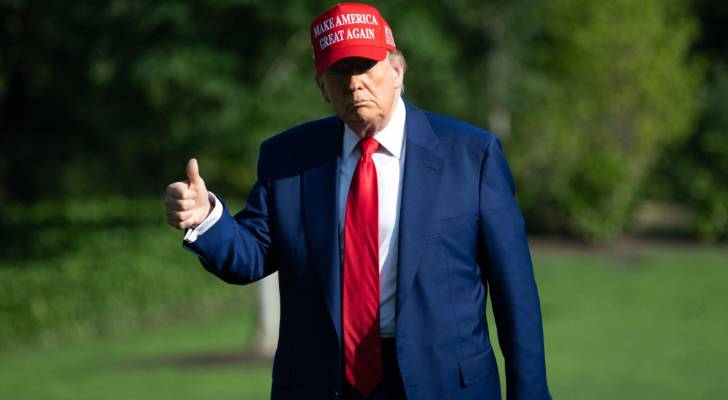 CEASEFIRE IS NOW IN EFFECT, PLEASE DO NOT VIOLATE IT!
CEASEFIRE IS NOW IN EFFECT, PLEASE DO NOT VIOLATE IT!
-
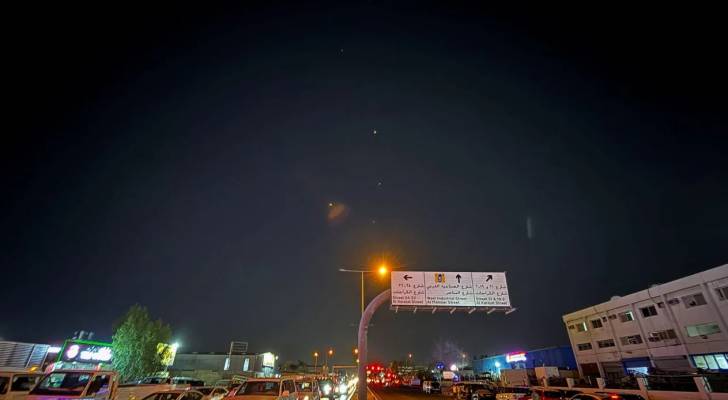 Iran missile strike on US Al Udeid base heightens Gulf tensions
Iran missile strike on US Al Udeid base heightens Gulf tensions
-
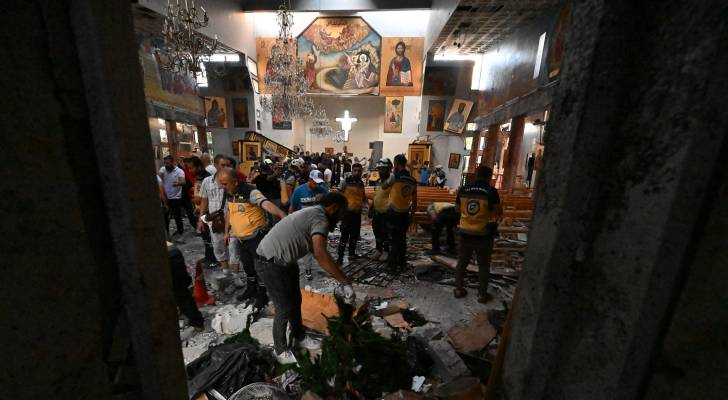 Syria announces arrests over Damascus church attack: Interior ministry
Syria announces arrests over Damascus church attack: Interior ministry
-
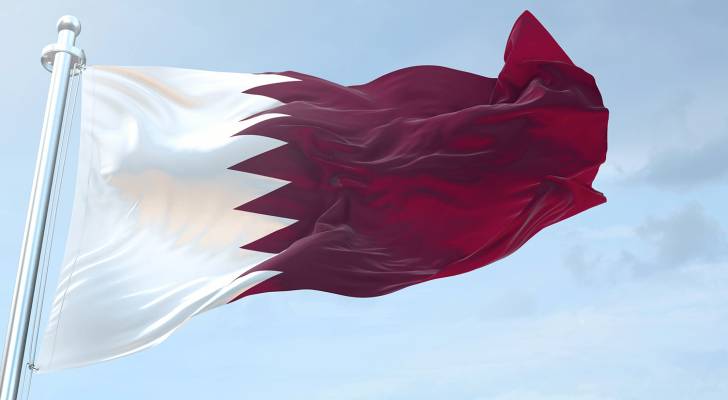 Qatar suspends air traffic as precautionary measure: Foreign ministry
Qatar suspends air traffic as precautionary measure: Foreign ministry
-
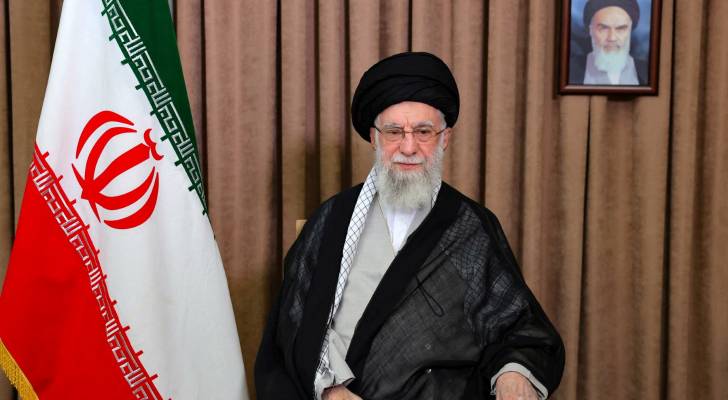 Khamenei retreats to bunker as fears of assassination grow: New York Times
Khamenei retreats to bunker as fears of assassination grow: New York Times